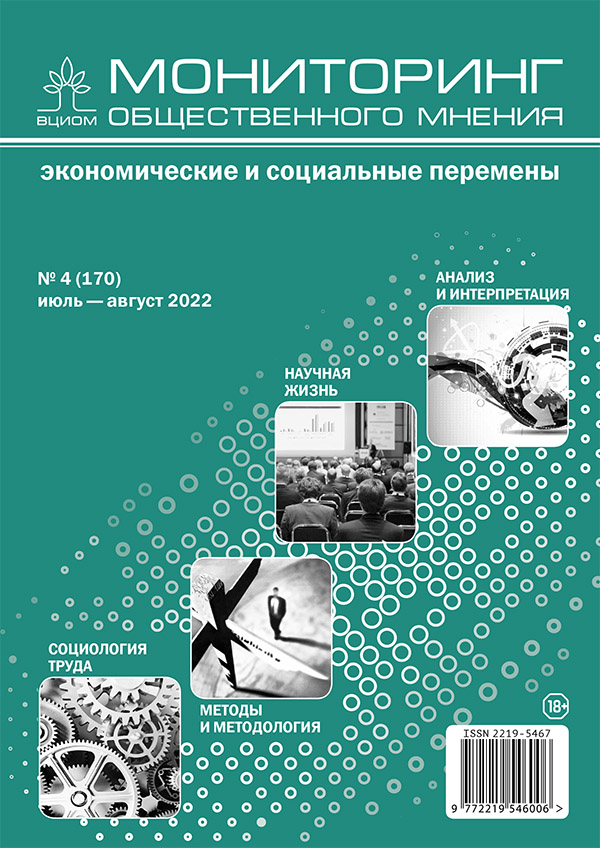Социально-экономическое положение, территориальная идентичность и социальная активность жителей наукоградов (по результатам экспертного опроса)
DOI:
https://doi.org/10.14515/monitoring.2022.4.2172Ключевые слова:
наукограды, целевые группы, территории развития, пространственная идентичность, социальная активностьАннотация
В статье представлен социологический подход к изучению наукоградов, который позволяет обозначить место и роль индивидов и социальных групп в городском пространстве в широком его понимании, включающем пространство социальных отношений и субъективных смыслов. Цель исследования — социологическое осмысление феномена наукограда посредством раскрытия закономерностей между восприятием социально-экономического положения города, уровнем гражданской активности населения и территориальной идентичностью. Анализируется дуальная природа наукограда, включающая концепты «город» и «наука». Концепт «город» позволяет рассматривать наукоград как малый город, моногород, сравнивать его статус со статусом закрытого административно-территориального образования, а также утопическими моделями соцгорода и города-сада. Поскольку наука становится основой экономики наукограда, этот тип города сопоставим с так называемыми территориями развития. При этом показано, что внимание государства сосредоточено на развитии иннополисов, а наукограды воспринимаются как наследие прошлой эпохи.
В целях анализа восприятия статуса наукоградов с позиции представителей власти, бизнеса и общественности в мае-июне 2021 г. в городах Протвино и Пущино Московской области был проведен экспертный опрос. Результаты исследования позволили выявить низкую экспертную оценку социально-экономического положения городов и его динамики. Несмотря на констатацию развитости социальной инфраструктуры, отрицательно оцениваются перспективы трудоустройства молодежи, что ведет к разрыву научных династий и поиску работы в более крупных городах. В результате наукоград превращается в спальный район без характерной «научной» идентичности, развивать которую не стремятся ни власть, ни бизнес. По данным исследования, уровень социальной активности жителей наукоградов остается низким, при этом ученые, по мнению представителей других целевых групп, не играют особой роли в поддержании специфики социокультурного пространства города и не влияют на общественное мнение. На основании проведенного анализа представлены три сценария развития наукоградов с учетом их внутренних ресурсов и потенциала конкурентоспособности.
Загрузки
Опубликован
Как цитировать
Выпуск
Раздел
Лицензия
Copyright (c) 2022 Мониторинг общественного мнения: экономические и социальные перемены

Это произведение доступно по лицензии Creative Commons «Attribution-NonCommercial-ShareAlike» («Атрибуция — Некоммерческое использование — На тех же условиях») 4.0 Всемирная.






